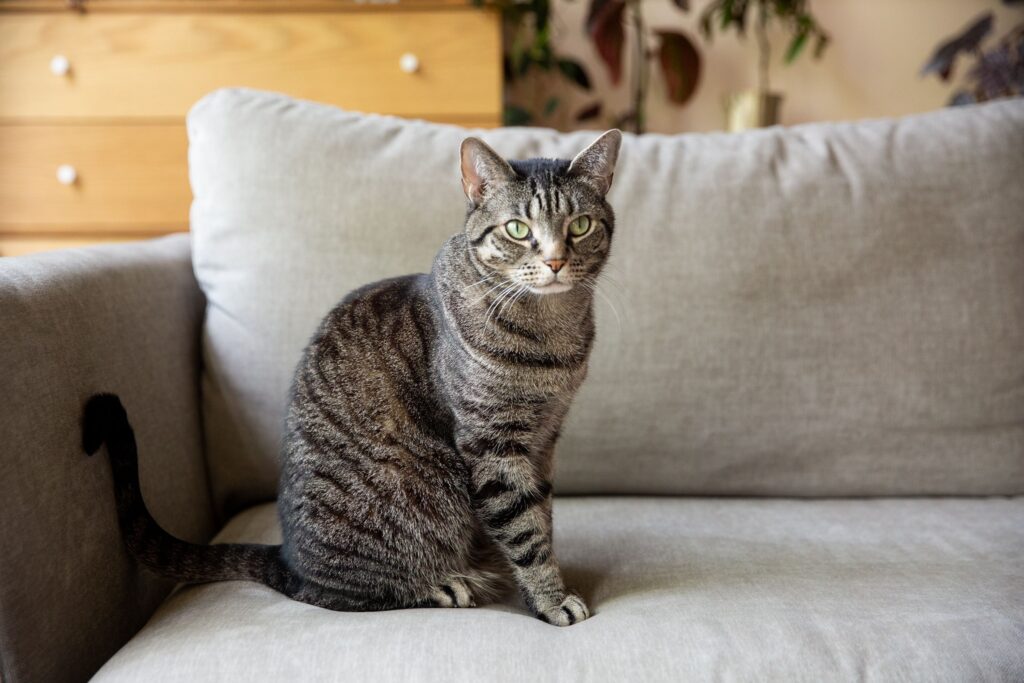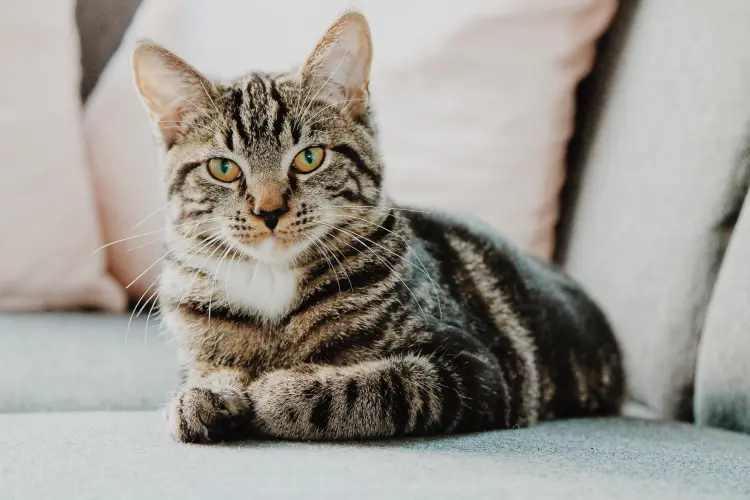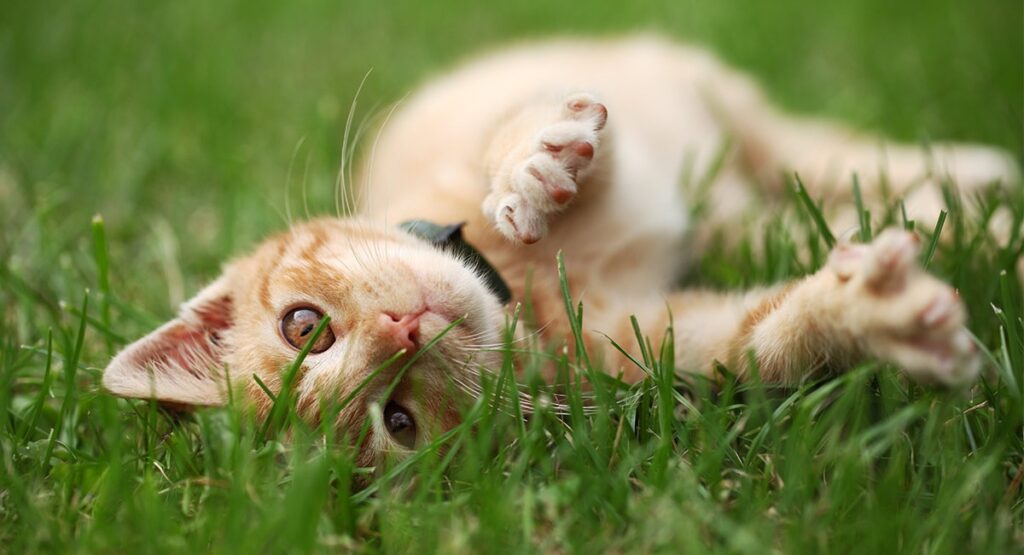The Domestic Shorthair Cat is a beautiful, popular and beloved cat breed in thousands of homes around the world. It is a common breed of cat that is not recognized as a specific breed by most cat registries. Rather, it is a term used to describe cats of mixed or unknown heritage with short hair.

These cats can come in a variety of colors and patterns, and their size and temperament can vary widely depending on their individual genetic makeup and the environment in which they were raised. They are generally known to be intelligent, curious, and affectionate pets that can adapt well to a variety of living situations.
Domestic Shorthair Cat Features: Color, Size and Weight
Domestic Shorthair cats can vary greatly in color, size, and weight as they are a mixed breed of cat with no specific breed standard. However, here are some general characteristics:
Short, dense coat: As their name suggests, Domestic Shorthair cats have short, thick fur that requires minimal grooming.
Color: DSH cats can come in a variety of colors and patterns, including black, white, gray, tabby, calico, tortoiseshell, and bi-color. Some may have solid coats, while others may have stripes, spots, or a combination of both.
Size: Domestic Shorthair cats are typically medium-sized cats, weighing between 8 and 12 pounds. However, there can be some variation in size depending on genetics, diet, and other factors.
Weight: As mentioned, DSH cats usually weigh between 8 and 12 pounds. However, some cats may be smaller or larger than this range depending on their individual characteristics.
Round head with pointed ears: Domestic Shorthair cats have a round head and slightly pointed ears.
Green, gold or hazel eyes: They have large, expressive eyes that are usually green, gold, or hazel in color.
Friendly and adaptable personality: DSH cats are known for their friendly, sociable personalities and adapt well to different living situations.
Domestic Shorthair Cat Lifespan
The lifespan of Domestic Shorthair cats can vary depending on a variety of factors, such as genetics, diet, and overall health. However, on average, they can live anywhere from 12 to 20 years with proper care and nutrition. Some DSH cats have even been known to live into their early 20s.

To ensure a long and healthy life for your Domestic Shorthair cat, it’s important to provide them with a balanced diet, regular exercise, and routine veterinary care. Additionally, keeping them indoors and protecting them from hazards such as toxic substances and other animals can help prevent accidents and illnesses that could shorten their lifespan. By providing your DSH cat with a safe and loving environment, you can help them live a long and happy life.
Domestic Shorthair Cats: Diet
Domestic Shorthair cats, like all cats, require a balanced and nutritious diet to maintain their health and well-being. Here are some important things to consider when feeding your Domestic Shorthair cat:
High-quality cat food: Look for a cat food that contains high-quality sources of protein, such as chicken, turkey, or fish. Avoid cat foods that contain fillers or artificial ingredients.
Wet vs. dry food: Some cats prefer wet food, while others prefer dry food. Wet food can be beneficial for cats that need to increase their water intake, while dry food can help maintain dental health.
Portion control: Overfeeding can lead to obesity and other health problems. Follow the feeding guidelines on your cat’s food label and adjust as needed based on their activity level and weight.
Treats: Treats should be given in moderation and should not make up a large portion of your cat’s diet. Look for healthy treats that are specifically formulated for cats.
Water: Ensure your cat has access to fresh, clean water at all times.
It’s also important to note that some cats may have special dietary needs or health conditions that require a specific type of diet. If you have any concerns about your Domestic Shorthair cat’s diet or nutritional needs, consult with your veterinarian.
Domestic Shorthair Cats Diseases and Cure
Like all cats, Domestic Shorthair cats can be prone to certain health conditions. Here are some common diseases and treatments that Domestic Shorthair cat owners should be aware of:
Dental problems: Domestic Shorthair cats can be prone to dental issues, such as periodontal disease and tooth decay. Regular dental cleanings and proper dental care can help prevent these issues.
Urinary tract infections: Male cats in particular can be prone to urinary tract infections, which can be caused by a buildup of crystals in the bladder. Treatment may involve antibiotics and dietary changes.
Feline leukemia virus (FeLV): This viral disease can weaken a cat’s immune system and lead to other health problems. There is no cure for FeLV, but supportive care and management of symptoms can help improve a cat’s quality of life.
Feline immunodeficiency virus (FIV): This viral disease can also weaken a cat’s immune system and make them more susceptible to other infections. There is no cure for FIV, but supportive care and management of symptoms can help improve a cat’s quality of life.
Obesity: Obesity can lead to a variety of health problems in cats, including diabetes, joint problems, and heart disease. Proper nutrition and exercise can help prevent and manage obesity in cats.
Are Domestic Shorthair Cats Friendly?

Yes, Domestic Shorthair cats are generally known for being friendly and sociable with people. They are often described as being affectionate, playful, and adaptable, making them great pets for families or individuals. However, like all cats, each Domestic Shorthair has its own unique personality and temperament, so it’s important to spend time getting to know a cat before adopting them. Additionally, proper socialization and care can also play a role in a cat’s friendliness towards humans.
